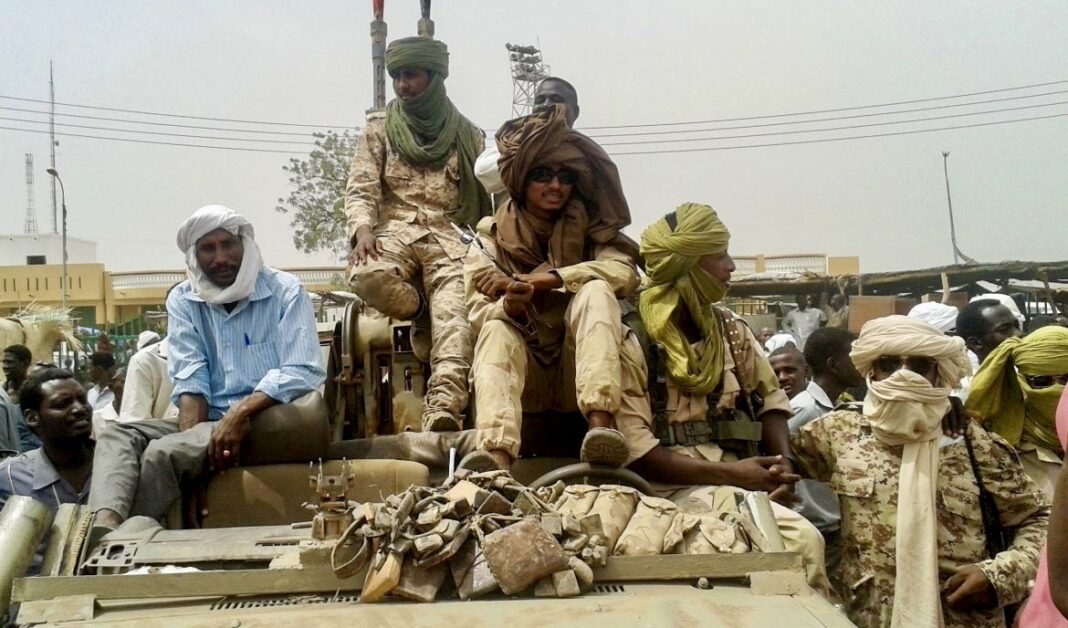Nyala, soon Darfur, in the grip of the Rapid Support Forces. |File Photo|.
The Rapid Support Forces (RSF) killed scores of civilians, and injured, raped, and abducted many others in waves of attacks in Habila and Fayu, two towns in Sudan’s South Kordofan state, between December 2023 and March 2024, Human Rights Watch said today.
The attacks on mainly ethnic Nuba residents, which had not been widely reported, constitute war crimes.
“The Rapid Support Forces’ abuse of civilians in South Kordofan is emblematic of continuing atrocities across Sudan,” said Jean-Baptiste Gallopin, senior crisis and conflict researcher at Human Rights Watch. “These new findings underscore the urgent need for the deployment of a mission to protect civilians in Sudan.”
For 16 days in October, Human Rights Watch researchers visited areas of the Nuba Mountains in South Kordofan controlled by the Sudan People’s Liberation Movement-North (SPLM-N), a primarily ethnic Nuba armed group that has controlled parts of the state for decades.
Researchers visited sites hosting tens of thousands of mostly Nuba displaced people who had fled areas controlled by the parties fighting for control of the country – the Sudanese Armed Forces (SAF) and the RSF – in South Kordofan and elsewhere in Sudan.
Researchers interviewed 70 displaced people, 40 of them survivors of RSF attacks on Habila, Fayu, and neighboring villages, and analyzed satellite imagery of the area from December 2023 to October 2024. Researchers also spoke with 24 other people, including aid workers, local officials, and others with knowledge of the area.
Human Rights Watch documented the killings of 56 unarmed people in these attacks, including 11 women and 1 child, based on interviews with witnesses. The RSF killed people both execution-style in homes and by shooting them on the streets. The actual figures may be significantly higher, given that most people fled in various directions after the attacks.
Human Rights Watch also documented the rape of 79 women and girls, including in the context of sexual slavery, based on interviews with survivors, witnesses, and relatives and friends of the victims.
On November 25, Human Rights Watch sent a detailed email summary of its findings with specific questions to Lieutenant Colonel Al-Fateh Qurashi, the RSF spokesperson, but had not received a response at time of publication.
Since the start of the conflict between the SAF and the RSF in April 2023, hundreds of thousands of people have fled to SPLM-N-held territory, which experienced conflict throughout the 2010s but is currently one of the most stable parts of Sudan.
There have been clashes between the SAF, RSF, and SPLM-N in other parts of South Kordofan bordering areas controlled by the SAF and the RSF. Among the affected areas were the towns of Habila and Fayu, and neighboring villages, all in Habila County.
RSF fighters attacked the town of Habila, held by the SAF, on December 31, 2023. On that day and in the following days, the RSF killed at least 35 civilians and unarmed fighters in deliberate and indiscriminate attacks, injured other civilians, and raped women and girls. They also looted extensively from civilians.
Three women said the RSF killed at least eight people, including their relatives, in the family compound where their extended family had taken refuge in al-Safa neighborhood early in the morning of December 31.
“When the RSF arrived, they told the men, ‘Get your weapons out for us!’” one woman said. “The men said they did not have guns. Then the RSF said, ‘Bring out your money.’ The men said they had no money. That’s when the RSF started shooting them.”
Four survivors said most residents fled Habila after the RSF took over and that civilians were shot and killed while fleeing. The RSF also executed unarmed SAF soldiers and policemen, including in their homes.
Civilians who remained faced grave abuses at the hands of the RSF, who looted, raped women and girls, and killed men and boys who tried to intervene. Some who had initially fled returned a few days later to collect their belongings and found the town had been pillaged.
On January 1, the RSF attacked Fayu, 17 kilometers south, also under SAF control. This was the first of several attacks in which the RSF killed at least 21 civilians, abducted at least 18 women and girls and 5 men, and looted and destroyed civilian property.
A woman from Fayu, who fled along with other Nuba residents after the initial attack on January 1, said she returned a few weeks later to collect her property. “There was nothing [left],” she said. “Everything was destroyed, looted completely … They took my bed, my bedsheets, our tractor with the trailer, our clothes, and all our property inside [our house] … even the door.”
Tens of thousands of people fled their homes as attacks, including on civilians, continued throughout the region, and as the RSF and its allied Arab militias and the SPLM-N clashed in attempts to wrest control of Habila and Fayu. As of April 2024, over 47,000 people had been internally displaced from Habila County to other areas of South Kordofan, according to the International Organization for Migration (IOM).
Satellite imagery shows signs of looting and burning in Habila and Fayu and fire damage in four nearby villages. Human Rights Watch geolocated a video in one of these villages, Tungul, located 13 kilometers southwest from Habila, showing men wearing RSF uniforms riding on a motorbike in the village.
Houses on fire can be seen along the road. Analysis of satellite imagery shows that the houses were burned sometime between February 11 and 14, while thermal anomaly data captured a fire over Tungul on February 12.
The deliberate killings of civilians, rape and other forms of sexual violence, pillaging, and the deliberate destruction of civilian property are war crimes.
Human Rights Watch has previously documented grave abuses by the RSF and allied militias in other places in Sudan, including war crimes and crimes against humanity as part of a campaign of ethnic cleansing in West Darfur.
The United Nations and the African Union have not taken concrete steps to protect civilians. In an October 28, 2024 report to the UN Security Council, which made recommendations for the protection of civilians, the UN Secretary-General acknowledged that Sudanese civilians and local and international human rights groups were calling for the creation of a civilian protection mission, but did not propose how it could be deployed.
“The United Nations and the African Union should take decisive steps to deploy a mission that can protect Sudanese civilians from rampaging forces,” Gallopin said. “A mission to protect civilians could deploy to areas where civilians have found refuge but where humanitarian needs are dire, such as the areas of South Kordofan we visited.”




